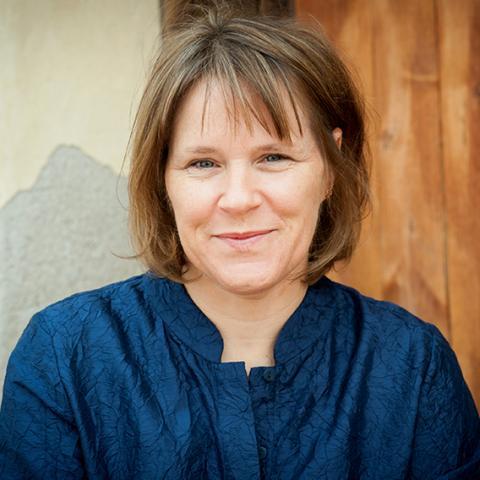Knowledge Graphs and Semantic Computing Speaker Series: Erin Leahey

Erin Leahey, Professor and Director of Sociology at the University of Arizona and an elected member of the Sociological Research Association, will present "Papers and Patents are Becoming Less Disruptive over Time."
Erin Leahey is a Professor and Director of Sociology at the University of Arizona and an elected member of the Sociological Research Association. She is known largely for her work on science, scientific careers, and inequality therein. She has focused on measuring and examining key characteristics of scholars’ research, including specialization, interdisciplinarity, and disruptiveness. She has published over 36 peer-reviewed articles, including one in Nature, six in our discipline’s top three journals (ASR, AJS, and Social Forces) and two in the Annual Review of Sociology. Professor Leahey has been awarded 12 grants from the National Science Foundation and a fellowship at the Radcliffe Institute for Advanced Study in 2008-09. Professor Leahey is chair-elect of the Methods section of the American Sociological Association. Her works extends beyond sociology into the fields of higher education, management, and information science – where you can find many of her collaborators and some former PhD students as well. Professor Leahey regularly gives invited talks around the country, and has been invited to give talks or keynote addresses in Germany, Sweden, Italy, Singapore, The Netherlands, Canada, England, and Wales.
Abstract:
Theories of scientific and technological change view discovery and invention as endogenous processes1,2, wherein previous accumulated knowledge enables future progress by allowing researchers to, in Newton’s words, ‘stand on the shoulders of giants’3,4,5,6,7. Recent decades have witnessed exponential growth in the volume of new scientific and technological knowledge, thereby creating conditions that should be ripe for major advances8,9. Yet contrary to this view, studies suggest that progress is slowing in several major fields10,11. Here, we analyse these claims at scale across six decades, using data on 45 million papers and 3.9 million patents from six large-scale datasets, together with a new quantitative metric—the CD index12—that characterizes how papers and patents change networks of citations in science and technology. We find that papers and patents are increasingly less likely to break with the past in ways that push science and technology in new directions. This pattern holds universally across fields and is robust across multiple different citation- and text-based metrics1,13,14,15,16,17. Subsequently, we link this decline in disruptiveness to a narrowing in the use of previous knowledge, allowing us to reconcile the patterns we observe with the ‘shoulders of giants’ view. We find that the observed declines are unlikely to be driven by changes in the quality of published science, citation practices or field-specific factors. Overall, our results suggest that slowing rates of disruption may reflect a fundamental shift in the nature of science and technology.
Publications:
Park, Michael, Erin Leahey, and Russell J. Funk (2023). “Papers and Patents are Becoming Less Disruptive over Time.” Nature 613: 138–144.
Wu, Lingfei, Aniket Kittur, Hyejin Youn, Staša Milojević, Erin Leahey, Stephen M. Fiore, Yong Yeol Ahn (2022). “Metrics and mechanisms: Measuring the Unmeasurable in the Science of Science.” Journal of Informetrics 16(2), pp. 1751-1577.
Leahey, Erin, Sondra Barringer, and Misty Ring-Ramirez (2019). “Universities’ Structural Commitment to Interdisciplinary Research” Scientometrics 118(3): 891-919.
Leahey, Erin, Christine Beckman, and Taryn Stanko (2017). “Prominent but Less Productive: The Impact of Interdisciplinarity on Scientists’ Research.” Administrative Science Quarterly 62(1): 105-139.
We continue the CIRSS speaker series in Spring 2023 with a focus on “Knowledge Graphs and Semantic Computing”. We will meet on Fridays, 9-10am Central Time, on Zoom. To join a session, go to the current week’s session and click the “access” link, which will lead you to a calendar entry. There, click the “PARTICIPATE online” button to join a session. Recordings of past talks can be found next to "access" if available. The event is open to the public, and everyone is welcome to attend! This series is hosted by the Center for Informatics Research in Science and Scholarship (CIRSS). If you have any questions, please contact Jana Diesner and Halil Kilicoglu.
If you are interested in this speaker series, please subscribe to our speaker series calendar: Google Calendar or Outlook Calendar.
This event is sponsored by Center for Informatics Research in Science and Scholarship